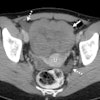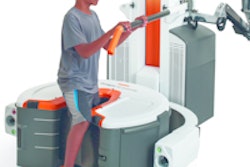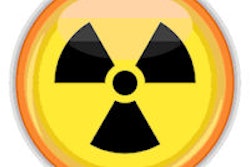Dear CT Insider,
In the U.S., myocardial perfusion imaging with SPECT is a mainstay for resolving clinical suspicion of coronary artery disease. But it may result in the referral of patients to the cath lab who don't need to be there.
A new study from researchers from the U.S. and Germany found that nearly half of patients who test positive on the functional test turn up negative at coronary CT angiography (CCTA), calling into question the routine first use of SPECT imaging for suspected coronary disease. Was CCTA accurate? Were the investigators simply comparing apples and oranges? What other pathologies could have affected the results?
Learn more about the intriguing results of the group's five-year study in this issue's Insider Exclusive, brought to you as an Insider before our regular members can access it.
The California dose reporting law is difficult to comply with, according to a new study from Stanford University that discovered errors in the reporting of dose information on radiology reports. Automated dose reporting could help eliminate the human portion of the error, but real progress will depend on a lot of human-level thinking taking place first, according to an article you'll find here.
Taking aim at the rising number of pancreatic cysts being detected incidentally at CT, the American Gastroenterological Association has stirred another turf battle with a new recommendation that doctors avoid invasive workup, surveillance, or surgery for most patients with pancreatic cysts, reserving their aggressive follow-up techniques for cysts with high-risk features. The problem is that follow-up imaging tests have only modest sensitivity, paving the way for doctors to save money and potentially avoid harm by doing nothing. Get the rest of the story by clicking here.
The verdict on patient education is in -- and patients who undergo frequent exams say they want as much information as possible about the potential dangers of radiation-bearing exams. According to a new study based on focus groups, patients have a lot to say about imaging in general. And although they want more complete explanations, they don't want to hear them from just anyone. Learn who patients want their explanations from in an article you'll find here.
Coronary CT angiography is probably the best single step doctors can take to clarify decision-making and focus treatment on those who need it, according to the recently concluded American Heart Association annual meeting in San Diego. In particular, research results in a study of thousands of patients suggest that one of CT's greatest advantages lies in the management of young patients, in whom chest pain can be misdiagnosed with devastating results, according to an article you'll find here.
Finally, a new study of middle-aged athletes found that nearly one-fifth are at risk of a heart attack. Vigorous exercise is, of course, inseparable from living a long and healthy life, but older athletes may want to tone down the intensity just a bit, according to this article.
We invite you to scroll through the links below -- and to stay tuned to your CT Community for the news that matters in imaging's master modality.




















